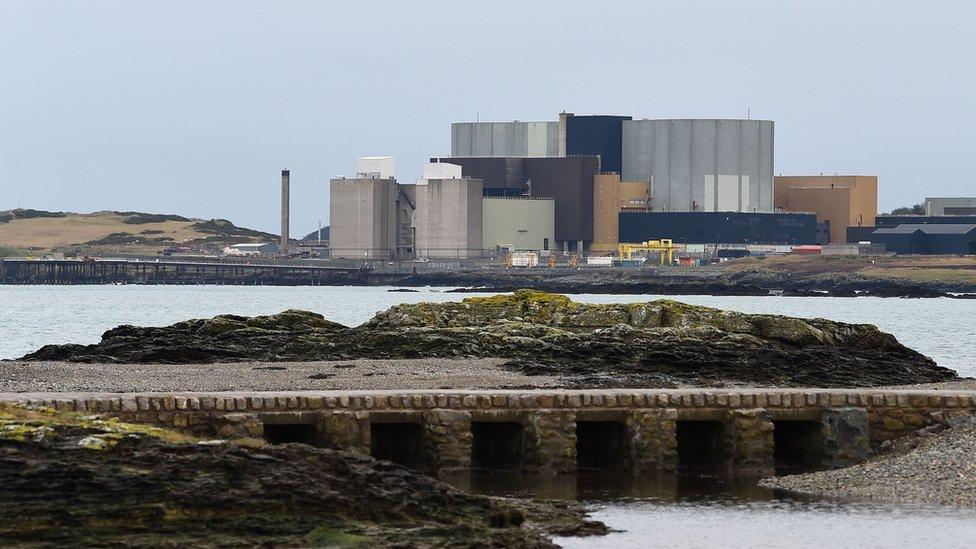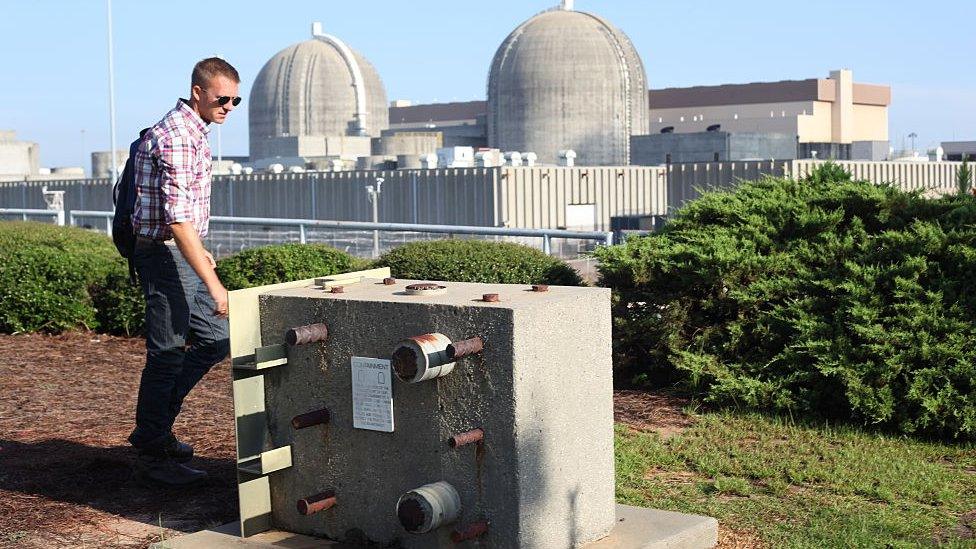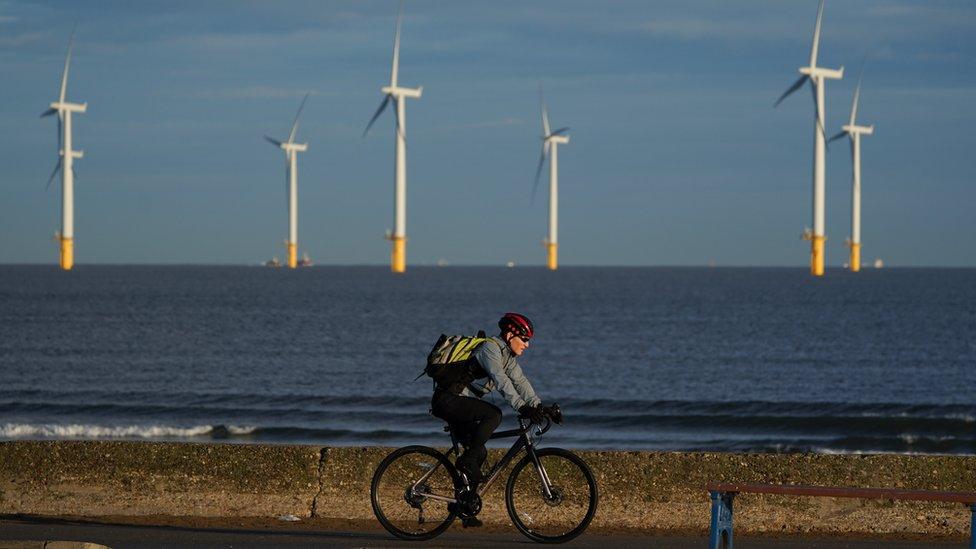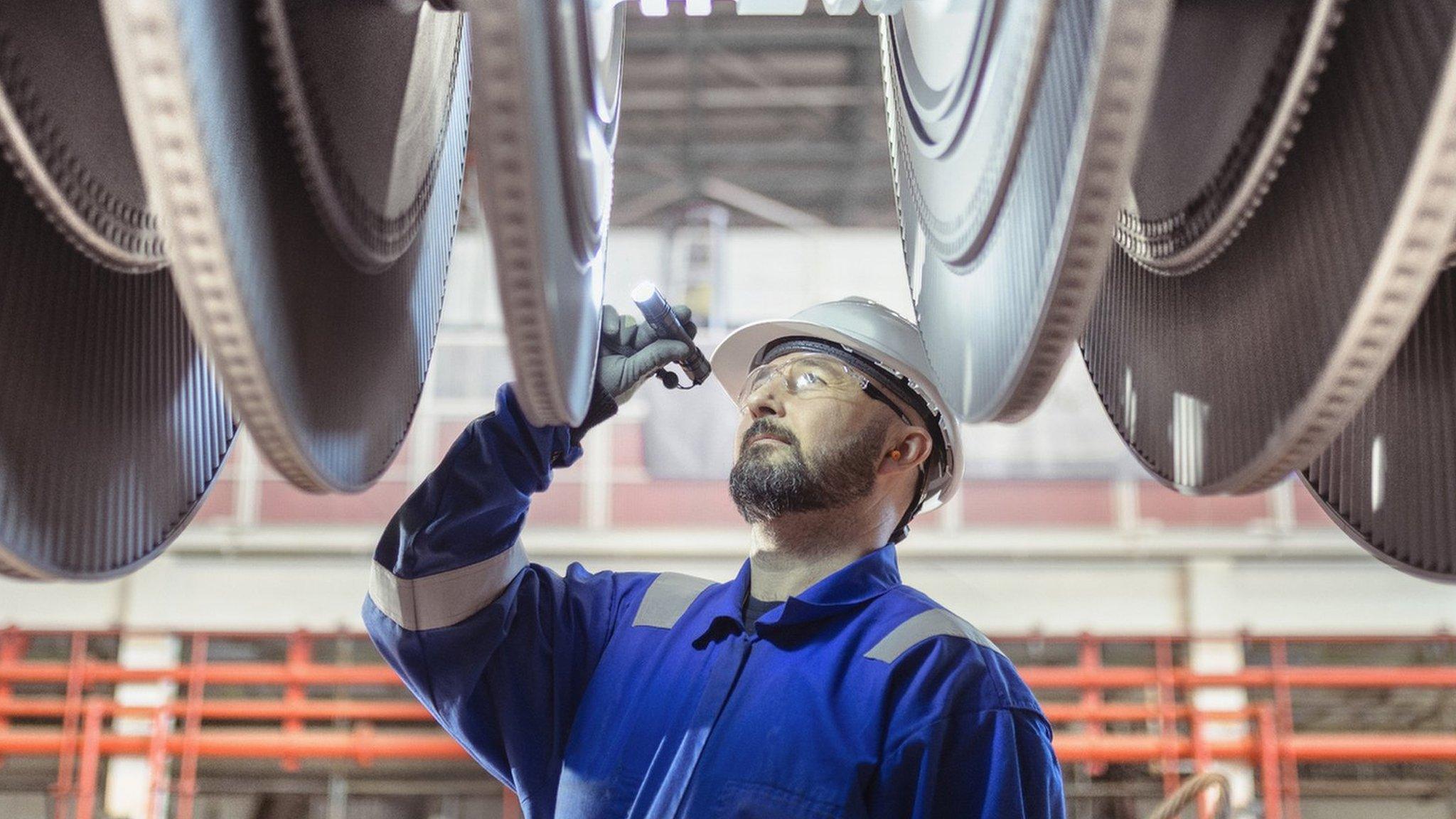Wylfa: UK minister visits US hoping for nuclear deal
- Published

Previous plans for a new nuclear power plant at Wylfa collapsed due to a lack of UK government funding
The Conservative Welsh secretary is heading to the US to help move forward proposals for a new nuclear power plant in north Wales.
Simon Hart will visit the Vogtle plant in Georgia, being built by two firms in talks over proposals for a scheme at Wylfa.
Mr Hart said he hopes the visit "moves us a step closer" to a deal over the plan.
He said the UK government is "deadly serious about large scale nuclear".
But he said the UK's energy strategy, to be published on Thursday, is unlikely to mention Wylfa by name.
The Vogtle plant is being assembled by the engineering firm Bechtel with two new Westinghouse reactors.
Last year UK officials revealed talks had taken place with both companies about Wylfa.
The Georgia project is behind schedule, with the Reuters news agency and local media reporting on fresh delays in recent months.
Speaking to BBC Wales, Mr Hart said Thursday's statement will outline "what the UK's ambitions are for nuclear, and in the context of energy security and reliability".
"What Bechtel and Westinghouse want to hear from us, and they'll hear it from me... is that we're deadly serious about large scale nuclear in the UK and in particular on this fantastic site [on Anglesey]."
"Part of the plan is the release of money, in due course, from the future nuclear fund, which will enable them to build up a business case, and for us to be able to hope the US [and] UK shake hands on one of the biggest nuclear developments in recent times.
"If this week's visit moves us a step closer to that position, then it will be a very worthwhile exercise".

Plans for new reactors at Vogtle in Georgia are reportedly behind schedule and overbudget
He said one of the reasons he is going is to establish why there is a delay at the Vogtle plant and if lessons have been learned "when and if it comes to something similar on Anglesey".
But he said it was "a bit dangerous" to say the energy strategy itself will "namecheck" Wylfa.
"This is about a broader strategic importance of things like floating offshore wind, and nuclear."
"If we get really encouraging signs from UK government, from my colleagues on Thursday, about where nuclear fits in our plants, then I think that's I hope going to be the source of some optimism for people who've been led to the edge and back a few times with Wylfa in the past.
"Clearly we want to try avoid doing that again. We want this thing to actually happen sooner than later."
He added there were "really encouraging signs coming from the Crown Estates about what's possible with the Celtic Sea, off the west coast" with offshore wind.
"There's almost unlimited capacity for floating offshore."
The UK government's Energy Strategy is expected to be published on Thursday and is set to show how the UK will establish more secure sources of energy over the coming years, and meet targets to phase out carbon emissions.
Security demands have increased following Russia's invasion of Ukraine and the threat - both moral and real - to gas and oil supplies.
On the weekend, the UK government Business Secretary Kwasi Kwarteng said six or seven new nuclear reactors could be built by 2050.
It has also been reported that ministers have agreed to set up a new development body called Great British Nuclear, to identify sites, cut through red tape to speed up the planning process, and bring together private firms to run each site.
There would still be a considerable way to go before any deal is struck to build a new nuclear power station.
Any company interested would need to raise a substantial amount of private sector investment as well as receive significant support from the state.
The UK government's Future Nuclear Enabling Fund would be expected to provide millions of pounds of tax payers money as a "kick start" to any scheme.
Longer term, a Regulated Asset Base model of funding could be used.
Related topics
- Published7 April 2022

